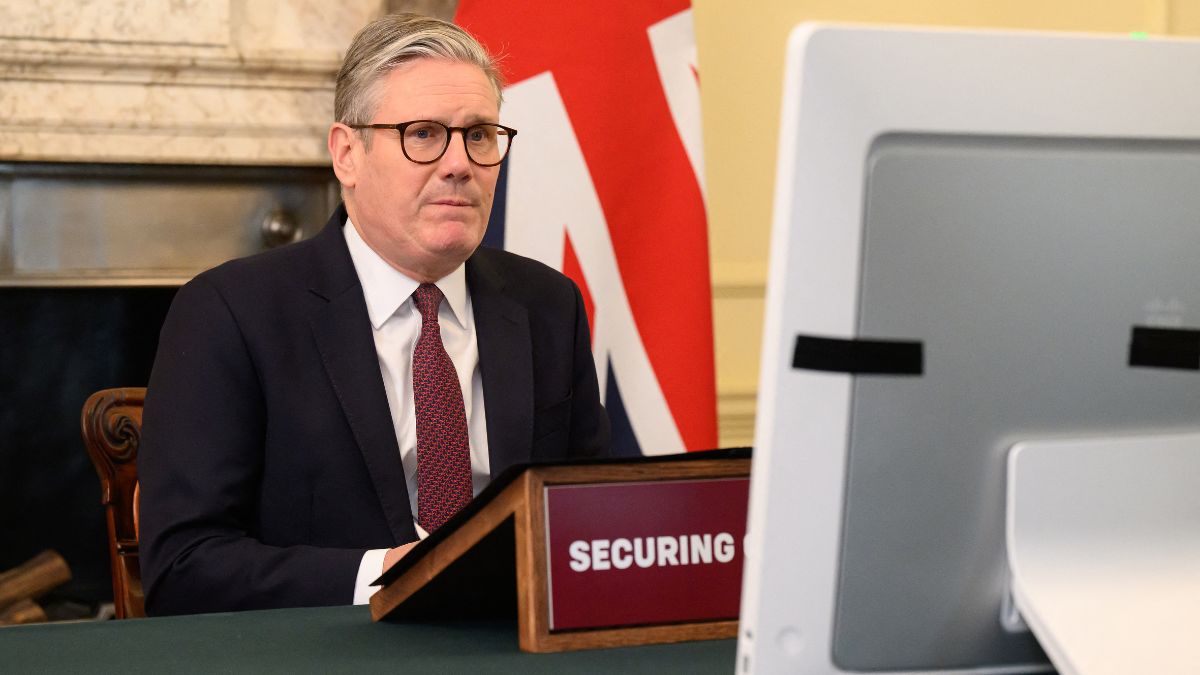Britain, Canada and Australia recognised a Palestinian state on Sunday in a coordinated move borne out of frustration over the Gaza war and intended to promote a two-state solution, angering Israel.
Other countries, including France, are expected to follow suit in the coming days. There was no immediate response from Israel’s closest ally, the United States, which has said it has no plans at this juncture to recognise a Palestinian state.
However, reacting to this, Israeli PM Benjamin Netanyahu said “I have a clear message to those leaders who recognise a Palestinian state after the horrific massacre of October 7: You are giving a huge reward to terrorism. And I have another message for you: It will not happen. A Palestinian state will not be established west of the Jordan River."
Australia confirms recognition
Australia’s decision, first signalled in August, was confirmed in a joint statement by Prime Minister Anthony Albanese and Foreign Minister Penny Wong.
The joint statement said, “Australia recognises the legitimate and long-held aspirations of the people of Palestine to a state of their own. Today’s act of recognition reflects Australia’s longstanding commitment to a two-state solution, which has always been the only path to enduring peace and security for the Israeli and the Palestinian people.”
Coordinated international effort
The move came alongside similar declarations by Canada and the United Kingdom, as Albanese arrived in New York for the 80th UN General Assembly. France, Belgium and Portugal also recognised Palestine during the session, part of what Australia described as “a co-ordinated international effort to build new momentum for a two-state solution.”
Canada joins the recognition
Canada formally recognised Palestine on Sunday, acting alongside international partners to preserve the prospects of a two-state solution, the Prime Minister’s Office (PMO) said.
“Over many decades, Canada’s commitment to [a two-state solution] was premised on the expectation that this outcome would eventually be achieved as part of a negotiated settlement,” the PMO said.
Erosion of the two-state solution
The statement added that the prospect of a two-state solution “has been steadily and gravely eroded” by several events, including the Hamas-led attack on Israel on October 7, 2023, the Israeli parliament’s move to support annexation of the occupied West Bank, and restrictions by the Israeli government on humanitarian aid.
Starmer calls for two-state solution
British PM Keir Starmer said “Today, to revive the hope of peace for the Palestinians and Israelis, and a two-state solution, the United Kingdom formally recognises the State of Palestine.
“The man-made humanitarian crisis in Gaza reaches new depths. The Israeli government’s relentless and increasing bombardment of Gaza, the offensive of recent weeks, the starvation and devastation are utterly intolerable."
Huge reward to terrorism
Israeli PM Benjamin Netanyahu said “I have a clear message to those leaders who recognise a Palestinian state after the horrific massacre of October 7: You are giving a huge reward to terrorism. And I have another message for you: It will not happen. A Palestinian state will not be established west of the Jordan River."
Palestinian President Abbas welcomes the move
Palestinian President Mahmoud Abbas said Abbas welcomed the move, saying it would allow the “State of Palestine to live side by side with the State of Israel in security, peace, and good neighbourliness”.
Israel’s UN envoy calls for action
Israel’s UN Ambassador Danny Danon said “Empty declarations that ignore the reality and the sinister forces of our region do not advance anything. No declaration of any country will change the simple fact that before everything the hostages must be returned and that Hamas must be defeated. The defeat of Hamas and the end of the war will not be achieved by performative speeches at the UN, but by the sustained pressure and activities on the ground by the State of Israel."
Israel’s FM Smotrich rejects Palestinian state permanently
Israeli finance minister Smotrich said “The days when Britain and other countries would determine our future are over, the mandate is over, and the only answer to the anti-Israeli move is sovereignty over the homeland of the Jewish people in Judea and Samaria and removing the foolish idea of a Palestinian state from the agenda forever."
Israel’s opposition leader blames Netanyahu for diplomatic crisis
Israeli opposition leader Yair Lapid said in a post on X that the “unilateral” recognition of a Palestinian state was a reward for terrorism, but also put some of the blame on the Netanyahu government.
“A functioning Israeli government could have prevented this through professional diplomatic dialogue and proper diplomacy. The government that brought upon us the worst security disaster in our history is now also bringing upon us the most severe diplomatic crisis,” he said.
Impact Shorts
More ShortsWith inputs from agencies
)